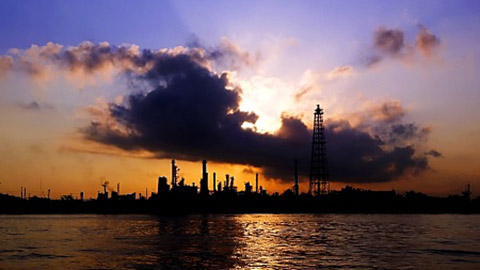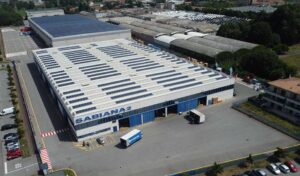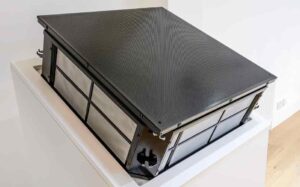Scientists discover new ozone depleters
18th February 2015 UK: Scientists report that chemicals not currently controlled by the Montreal Protocol are contributing to ozone depletion.
UK: Scientists report that chemicals not currently controlled by the Montreal Protocol are contributing to ozone depletion.
The new study, funded by the Natural Environment Research Council (NERC) and led by a team from Leeds University, reports the rapidly growing atmospheric abundance of a ‘very short-lived substances’ (VSLS) – dichloromethane, or methylene chloride. Dichloromethane is used in a number of industrial processes including the production of some HFCs.
Study lead author Dr Ryan Hossaini, from the School of Earth and Environment at the University of Leeds, said: “VSLS can have both natural and industrial sources. Industrial production of VSLS is not controlled by the United Nations Montreal Protocol because historically these chemicals have contributed little to ozone depletion.
“But we have identified now that one of these chemicals is increasing rapidly and, if this increase is allowed to continue, it could offset some of the benefits to the ozone layer provided by the Montreal Protocol.”
In the study, the researchers used a 3D computer model of the atmosphere to determine the impact of VSLS on ozone and climate. Measurements of VSLS in the atmosphere over the past two decades by collaborators from the National Oceanic and Atmospheric Administration (NOAA) in the United States, were also analysed.
Study co-author professor Martyn Chipperfield, from Leeds’ School of Earth and Environment, said: “We need to continue monitoring the atmospheric abundance of these gases and determine their sources. At present, the long-term recovery of the ozone layer from the effects of CFCs is still on track, but the presence of increasing dichloromethane will lead to uncertainty in our future predictions of ozone and climate.”
The researchers found that while the amount of ozone depletion arising from VSLS in the atmosphere today is small compared to that caused by longer-lived gases, such as CFCs, VSLS-driven ozone depletion was found to be almost four times more efficient at influencing climate.
Dr Hossaini explained: “Due to their short atmospheric lifetimes, VSLS break down and destroy ozone in the lowermost part of the stratosphere. This is important, as a molecule of ozone lost in this region has a far larger impact on climate than a molecule destroyed at higher altitudes by longer-lived gases.”
The researchers also separated out natural sources of VSLS – such as seaweed in the ocean – and those released due to human activity – such as industrial processes – in order to determine the relative importance of each.
At present, naturally-emitted VSLS are said to account for around 90% of the total ozone loss caused by VSLS in the lower stratosphere. However, the study maintains that the contribution from man-made VSLS compounds is increasing and appears set to increase further in coming years.
Study co-author Dr Stephen Montzka from the NOAA added: “The increases observed for dichloromethane are striking and unexpected; concentrations had been decreasing slowly in the late 1990s, but since then have increased by about a factor of two at sites throughout the globe.”
Dr Hossaini said: “It is uncertain what is driving this growth. However, it could be partly due to the fact that dichloromethane is used in the manufacturing process of some HFCs. This would mean, ironically, that production of ozone-friendly chemicals is actually releasing some ozone-destroying gases into the atmosphere.”







